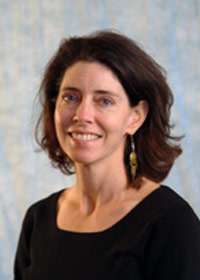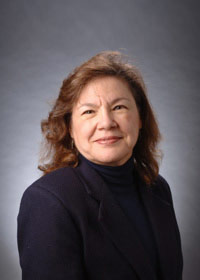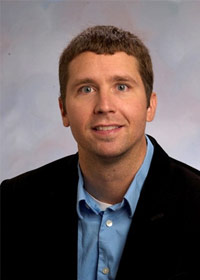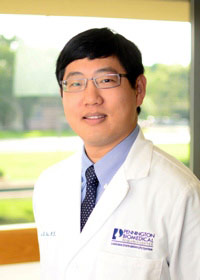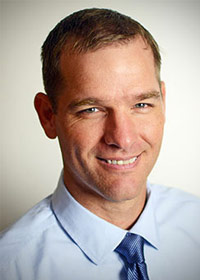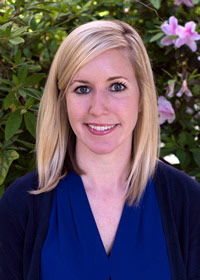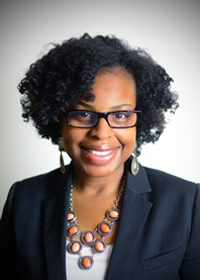Efforts to retain Louisiana’s best and brightest high school students in state often make the headlines. However, relatively little attention is focused on how to keep those brilliant minds in the Bayou State after they complete college, master’s or Ph.D. programs.
No matter where they receive their degrees, many Louisiana natives consider coming home to be near family and friends. However, finding competitive job opportunities—especially in the fields of science and technology—can prove challenging.

Fortunately, LSU’s Pennington Biomedical Research Center offers Louisiana scientists an opportunity to have the best of both worlds—to enjoy the comforts of home and to be a part of cutting-edge scientific discovery.
These Louisiana natives are among the renowned faculty, who could have chosen to work anywhere in the world but came back because of the opportunities available at Pennington Biomedical.
After pursuing her undergraduate degree in North Carolina, Stephanie Broyles, Ph.D., returned to the state to complete her doctorate. An associate professor, Broyles focuses on understanding how the people we know and the places we live affect our health. For example, the Baton Rouge native is examining the role neighborhood parks play in encouraging social interaction, physical activity, improved mental health and even the aging process.
Shortly after completing her doctorate in Mississippi in the 1980s, St. Martinville native Catherine Champagne, Ph.D., R.D.N., came to work for the newly constructed Pennington Biomedical Research Center. Over the years, everyone from school nutritionists to cookbook authors have sought out Professor Champagne’s expertise in food composition, menu design for specialized nutrient targets, dietary assessment and counseling strategies for chronic disease conditions such as obesity and heart disease.
Denham Springs native Jason Collier, Ph.D., completed his doctorate in New Orleans and post-doctoral training in North Carolina. After launching his career at the University of Tennessee, the assistant professor came to Pennington Biomedical to further explore the mechanisms in the pancreas that interfere with the release of insulin from beta cells in both Type 1 and Type 2 diabetes. Collier and his colleagues now focus their attention on developing new medicines and other treatments that could prevent the destruction of beta-cells or preserve the function of the remaining cells.
One of the few physicians board-certified in four specialties, Assistant Professor Daniel Hsia, M.D., is the medical director for all of Pennington Biomedical’s research studies that involve children. While much of the Thibodaux native’s research focuses on preventing and treating childhood obesity and diabetes, Hsia also maintains a clinical endocrinology practice for young adults. The Thibodaux native went to college and medical school in upstate New York. He was an LSU resident in New Orleans during Hurricane Katrina and completed his fellowship in Houston before returning to Baton Rouge.
As a student worker in the laboratory of World War II hero and legendary Pennington Biomedical scientist William Hansel, Ph.D., Chris Morrison, Ph.D., worked his way up from rearranging books and washing beakers to undertaking his own experiments. After the Clinton native left Louisiana to pursue his Ph.D. in Missouri and post-graduate training in Seattle, the pull of Pennington Biomedical brought the young scientist and his family back to the Bayou State. Professor Morrison has identified the hormone FGF21 and its role in influencing how much protein we eat. His work now focuses on better understanding of how our brains sense and seek out nutrient-specific foods.
After working as a research assistant at Pennington Biomedical while an LSU undergrad, Baton Rouge native Amanda Staiano, Ph.D., left the Capital City for the U.S. Capitol to pursue a Ph.D. and master’s of public policy at Georgetown University. As an assistant professor, Staiano is exploring whether children are more inclined to eat vegetables if the behavior is modeled in videos using exergaming and other technology to get kids moving and collaborations with the Louisiana Department of Education to promote physical activity in childcare centers.
A native of Monroe, La., Ursula White, Ph.D., earned both her undergraduate and doctorate in biological sciences at LSU. Now an assistant professor at Pennington Biomedical, White is the director of the Physiology of Human Adipose Tissue Laboratory. In clinical studies, she is pioneering a new technique to measure fat cell generation and death in different locations of the body and studying how this process influences human fat distribution and metabolic health outcomes.
Click here for additional profiles of Pennington Biomedical’s world-renowned faculty.
